Fall 2024 Course Offerings
(Registration form is at the bottom of the page)
Please review our course offerings for the fall. Each course will meet once a week for five weeks. When you are ready to register, scroll to the bottom of the page and fill out the registration form. If you have any questions about the courses, please email Irina Rakhlis at irakhlis@tikvah.org.
George Orwell’s Animal Farm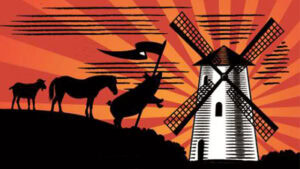
Dovid Schwartz
2 Date/Time Options Offered:
Wednesdays | 6–7:15 PM ET – COURSE FILLED
Wednesdays | 7:30–8:45 PM ET
In this course, we will read Animal Farm by George Orwell. Animal Farm is a simple story about farm animals who rebel against their farmer in a failed attempt to create a better society. It is also a profound criticism of Joseph Stalin and 20th century Russia. We will spend five sessions carefully reading the book and discussing what motivated the animals, where they went wrong, and what the farmer could have done better. Animal Farm is a rare book. You can first read in middle school and spend the rest of your life thinking about it.
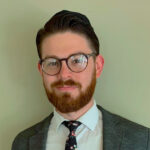 Dovid Schwartz teaches a Great Books course at Heichal Hatorah Yeshiva High School in New Jersey. He graduated from Yeshiva University having majored in Philosophy and minored in Jewish Studies. Before college, Dovid learned at Yeshivat Kerem b’Yavneh and Yeshivat Har Etzion. He has been the recipient of several fellowships from organizations including the Henry Salvatori Center, Hertog Foundation, and Tikvah Fund. Dovid currently lives in Teaneck, New Jersey, with his wife and daughter and he plans on pursuing a career in law.
Dovid Schwartz teaches a Great Books course at Heichal Hatorah Yeshiva High School in New Jersey. He graduated from Yeshiva University having majored in Philosophy and minored in Jewish Studies. Before college, Dovid learned at Yeshivat Kerem b’Yavneh and Yeshivat Har Etzion. He has been the recipient of several fellowships from organizations including the Henry Salvatori Center, Hertog Foundation, and Tikvah Fund. Dovid currently lives in Teaneck, New Jersey, with his wife and daughter and he plans on pursuing a career in law.
A Journey Through Jewish American Storytelling 
Chaya Sarah Oppenheim
Thursdays | 6:45–8 PM ET
Jews have been writing about life in America—or the goldene medinah—even before disembarking at Ellis Island. But what makes a story Jewish? American? Jewish American? What are the markers of these works of fiction that reflect the realities of Jewish American life, and why do they matter? This course will trace the historical trajectory of the Jewish experience in the United States through their storytelling. We will examine the literature produced by each generation of American Jews, ranging from immigrants on the Lower East Side to prominent post-1945 authors. This course will engage with the core issues facing thoughtful American Jews today through the lens of literature, allowing us to reckon with questions regarding identity and tradition as we look towards the future.
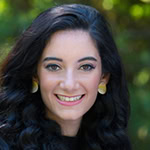 Chaya Sara Oppenheim is pursuing a PhD in Comparative Literature and Jewish Studies at the University of Pennsylvania. She holds a BA summa cum laude from Barnard College of Columbia University, where she studied English and history. At Barnard, she was the chief article editor of the literary journal Meliora and was the recipient of the William Haller Prize for the study of English literature, the Howard M. Teichmann Writing Prize, and the German Achievement Award. Chaya Sara has experience teaching English and Language Arts to 7th and 8th graders, creative writing at Writopia Lab, and multiple courses for Tikvah Online Academy. She currently serves as an editor for The Lehrhaus and The Shekel, and her writing has appeared in Tablet, HaMizrachi, Mishpacha, and Tradition, among other outlets.
Chaya Sara Oppenheim is pursuing a PhD in Comparative Literature and Jewish Studies at the University of Pennsylvania. She holds a BA summa cum laude from Barnard College of Columbia University, where she studied English and history. At Barnard, she was the chief article editor of the literary journal Meliora and was the recipient of the William Haller Prize for the study of English literature, the Howard M. Teichmann Writing Prize, and the German Achievement Award. Chaya Sara has experience teaching English and Language Arts to 7th and 8th graders, creative writing at Writopia Lab, and multiple courses for Tikvah Online Academy. She currently serves as an editor for The Lehrhaus and The Shekel, and her writing has appeared in Tablet, HaMizrachi, Mishpacha, and Tradition, among other outlets.
The Life of the Beloved and Reviled Golda Meir – COURSE FILLED

Maxwell Rotbart
Wednesdays | 7:30–8:45 PM ET
Embraced abroad, yet hated at home, Golda Meir is one of Israel’s most controversial and influential prime ministers. A feminist icon who rejected feminism, her legacy is one of contradictions and touches on some of the most contentious issues that Israeli and Diaspora Zionism face today. How can Golda Meir’s story better inform us about our present political moment?
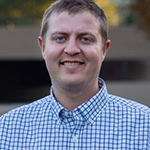
Maxwell Rotbart, a passionate advocate for Jewish and Israel education, was an inaugural member of The Tikvah Fund’s Abraham Lincoln Teachers Fellowship and Lobel Teachers Colloquium. He is the prize-winning author of “All You Can Eat Business Wisdom,” a leadership guide for entrepreneurs. He is also the author of “The State of Israel: Prime Ministers,” which serves as an introduction for middle school students to Israeli history. He spent a decade teaching middle and high school social studies at Denver Academy of Torah and currently serves as the education director at the Golda Meir House Museum. While completing his Master’s degree in history at the University of Nebraska, he is working on two additional books — one pertaining to Jewish history and the other to Jewish education.
Jews at the O.K. Corral and Throughout the Wild West – COURSE FILLED

Maxwell Rotbart
Mondays | 8–9:15 PM ET
When we think of Jewish life in the 19th-century United States, what usually comes to mind is Ellis Island and the crowded tenements of the Lower East Side. But thousands of miles away, Jews were carving a name for themselves in the wild American West. Living among cowboys and Indians, Jewish people found themselves in some of the era’s most notorious locations — including Tombstone, Arizona, home to the infamous O.K. Corral.

Maxwell Rotbart, a passionate advocate for Jewish and Israel education and an inaugural member of The Tikvah Fund’s Abraham Lincoln Teachers Fellowship, has taught middle and high school social studies at Denver Academy of Torah since 2014. He has also taught adult Jewish history classes and is the education director at the Golda Meir House Museum. Mr. Rotbart created and ran two national programs, teaching Jewish history and the Israeli economy to Jewish pre-teens and teenagers. He is the author of “The State of Israel: Prime Ministers” (available on Amazon), which serves as an introduction for middle school students to Israeli history. While completing his Master’s degree in history at the University of Nebraska, he is working on two additional books — one pertaining to Jewish history and the other to Jewish education.
Moral Meaning of Money

Daniel Gutkind
Sundays | 11 AM–12:15 PM ET
What is the role of money and wealth in our lives? In this course, we will think about the moral meaning of money with the help of sources both ancient and modern, from the Bible and Talmud to Adam Smith and Milton Friedman. The ancient Greeks and Jews were wary of wealth and its potential for moral corruption, whereas modern capitalist thinkers often tie prosperity positively to virtue and progress. How can we account for this apparent disagreement? How do we assess capitalism’s miraculous advances and its attendant potential vices? These questions do not have easy or simple answers, but through our readings and discussions we will come to understand different conceptions of wealth and the role it plays in private lives and public order.

Daniel Gutkind graduated with honors from the University of Chicago, where he studied Economics and Fundamentals: Issues and Texts. He received the Jamie Redfield Award for Excellence in Fundamentals, awarded to the student who has earned the highest honors scholastically in the Fundamentals program. Daniel has taught and co-taught courses for the Tikvah Online Academy on Zionist intellectual history, money and morality, and the American economy. He has also led Tikvah reading groups at the University of Chicago and Oxford.
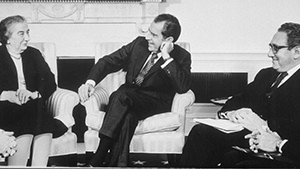
Women of Valor: Inspiring Strength and Resilience
Ariel Lutch
Tuesdays | 7–8:15 PM ET
In this course we will learn about the lives and contributions of three heroic women who served the Jewish people in different and outstanding ways: girls’-education pioneer Sarah Schenirer, poet and paratrooper Hannah Senesh, singer and composer Naomi Shemer and Prime Minister Golda Meir. Through reading their own writings, we will explore their historical contexts and the challenges they faced, and seek insight into their respective thought processes and passions. We will also examine the impact of their resilience and fortitude on the Jewish people and the world at large. Along the way, we will also explore the questions of what heroism looks like, and how we too might demonstrate bravery to meet the challenges of our own time.
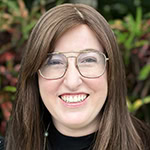
Mrs. Ariel Lutch is a teacher in the Truman Scholars Program and is the editor of the 2023-2024 editions of Truman’s core textbooks, Land of Liberty and Hope: The Jewish Experience in America and The Founding of Modern Israel: Leaders Who Built the Jewish State. In addition to her roles at Tikvah, Mrs. Lutch is a sought-after English Language Arts and history teacher at the Bais Yaakov School of Baltimore, MD. Mrs. Lutch has a Master of Art in Teaching degree from the Johns Hopkins University. In addition to her duties within the classroom, Mrs. Lutch coordinates several curricular initiatives between different academic divisions within her school. Mrs. Lutch was also a participant in the inaugural teacher’s colloquium for the Lobel Center at Princeton. Mrs. Lutch has three children and enjoys reading historical fiction in the rare quiet moment.
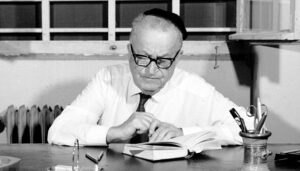
Modern Israeli Literature
Sarah Rinder
Sundays | 11 AM–12:15 PM ET
In this course we will study examples of modern Hebrew literature in order to form a deeper understanding of the State of Israel and the opportunities and challenges it faces. We will read and analyze select short works of fiction and poetry by S.Y. Agnon, Haim Hazzaz, Yehudah Amichai and Naomi Shemer. We will also read some contemporary literary responses to the events of October 7th. In thinking about these texts, we will pay attention to certain recurring themes: the relationship between Israel and diaspora, the role traditional Judaism should play in modern Israeli identity, and the way in which Hebrew literature in particular plays an important role in advancing the goals of Zionism.
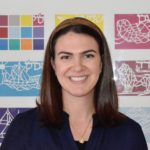
Sarah Rindner taught English Literature at Lander College for Women prior to making aliyah with her family in 2019. She writes frequently on Jewish and literary topics and is a regular contributor to Mosaic Magazine and the Jewish Review of Books. She has degrees in English Literature from Stern College and Columbia University and studied for a year at Midreshet Lindenbaum.

The Hebrew Bible’s Ancient Avengers
Stu Halpern
Sundays | 10–11:15 AM ET
Long before Spider-Man, Wonder Woman, Batman and the Guardians of the Galaxy, the Hebrew Bible’s Ancient Avengers were inspiring Americans. Ripped from the pages of Tanakh, the figures of Samson, Esther, Elijah, David and Daniel served as spiritual sustenance to freedom fighters, politicians, and pundits striving to see the United States live up to its founding ideals. In this course we will examine how these Jewish heroes shaped the American story from its founding era to today.
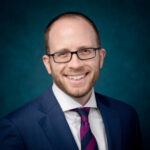
Rabbi Dr. Stuart Halpern is senior advisor to the provost and senior program officer of the Straus Center for Torah and Western Thought at Yeshiva University. He has edited or co-edited 17 books, including most recently, Esther in America, Proclaim Liberty Throughout the Land: The Hebrew Bible in the United States, and Gleanings: Reflections on Ruth. He has taught at Yeshiva University, synagogues, Hillels, and adult educational settings across the US, Europe, and Israel, and his writing has appeared in the Wall Street Journal, Newsweek, Tablet magazine, and the Jewish Review of Books.
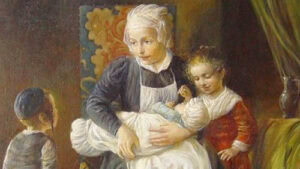
The Tales of Rabbi Nachman: Character and Destiny
Rabbi Gavriel Goldfeder
Mondays | 7–8:15 PM ET
In this course, we’ll explore the age-old question: “Are we products of our upbringing, or is there something deeper within us like our soul, destiny, or genetics that shapes who we are?” Through Rebbe Nachman’s story, “The Sons Who Were Switched,” we follow the intertwined lives of two boys, one born to a queen and the other to a servant, as they grapple with their conscience, make crucial decisions, and unearth surprising discoveries about themselves. This journey will prompt us to reflect on our own identities, why it matters, and how understanding ourselves contributes to a world in need of fixing. Join us in this thought-provoking exploration of character, destiny, and self-discovery.
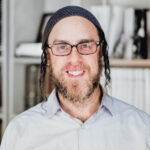
Rabbi Gavriel Goldfeder currently teaches Jewish studies to high-schoolers at Gann Academy outside of Boston. His work with teens also includes an incredible group of private students, both pre- and post-bar mitzvah. His focus on the experiences of Jewish teens and what our tradition can offer them literally keeps him up at night and is the overall focus of his career and lifestyle. Before Gann he worked at MIT Hillel, and before that he was a pulpit rabbi in Boulder, Colorado. He also runs a small independent Jewish publishing house and maintains a rigorous writing schedule. He has not let go of his dream of being a rock star.
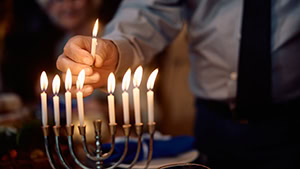
The True Meaning of Hanukkah – COURSE FILLED
Miriam Zami
Tuesdays | 7–8:15 PM ET
“The True Meaning of Hanukkah”: The Hanukkah story has become a symbol of Jewish resistance against a foreign culture, but was that always the story? In this course, we will explore the ancient foundations and modern resonances of the holiday of Hanukkah. With readings from the Book of Maccabees, Josephus, and the Talmud, through modern interpretations in literature, art, and politics, we will uncover how the meaning of Hanukkah has shifted over time and developed into a cultural fixture for both Zionism and Diaspora Jewry.

Ms. Miriam Zami is a PhD student in Talmud and Ancient Jewish History at the Bernard Revel Graduate School of Jewish Studies. Formerly, she served as the Springboard Fellow for the Hillel at Baruch, City, and John Jay Colleges, where she developed curricula and led Jewish programming for hundreds of students across New York City. She is an alumna of Stern College for Women, Midreshet Lindenbaum, and various bet midrash programs including Drisha and the Center for Modern Torah Leadership. Miriam lives in Manhattan with her husband.
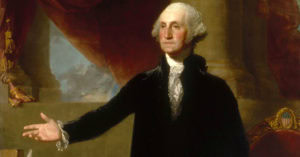
Defining a Nation: The Story of America’s Principles
Keith Harris
Mondays | 8–9:15 PM ET
This course explores the roots of American exceptionalism, beginning in 17th-century British North America. We will trace key exceptionalist ideas through the Revolutionary period, the Civil War and Reconstruction, and the twentieth-century Civil Rights Movement, examining how these events shaped and challenged the notion of America’s unique destiny.
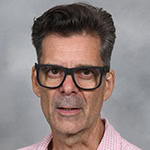
Keith Harris received his BA at the University of California at Los Angeles (summa cum laude) and his Ph.D. in United States history at the University of Virginia. He has taught courses in United States history at the University of Virginia and the University of California at Riverside and currently chairs the history department and teaches at Shalhevet High School in Los Angeles. His work focuses on nineteenth and twentieth-century American history with a special emphasis on the Civil War, reconstruction, historical memory, and national reconciliation. He is the author of Across the Bloody Chasm: The Culture of Commemoration Among Civil War Veterans and Mastering the Past: Unlocking Excellence in High School History. He is currently writing a series of essays on American exceptionalism and the monuments at Gettysburg. He lives and works in Hollywood, California.
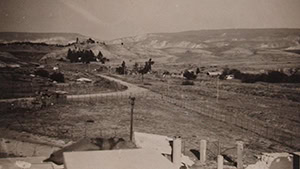
Mission Impossible: The Unlikely Story of Israel’s Success – COURSE FILLED
Ilan Yona
Wednesdays | 8–9:15 PM ET
Since 1948, the State of Israel has transformed itself from distant long-shot to an amazing success story. In this year-long seminar, we will discover the near-impossible yet extraordinary ideas and leaders behind the earliest triumphs of the Jewish state. This fall, we will look at several challenges the Jewish state faced and overcame during its formative period, the country’s early decades. These challenges were virtually without precedent in the history of nations and in each case Israel turned a daunting task into an opportunity to establish itself as a regional power and the driving force in leading the Jewish people worldwide. This course will include sessions on the 1948 War of Independence, the immigration of Jews from Arab lands, Israel’s development of nuclear weapons and the kidnapping and trial of the top-ranking Nazi Adolf Eichmann.
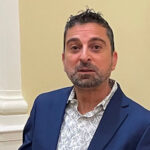
Ilan Yona is Hebrew Instructional Coach at Pressman Academy in Los Angeles, and concurrently a doctoral candidate in second language pedagogy at Middlebury College. Born in Israel, Ilan is passionate about connecting young Jewish students to the Hebrew language, to Jewish religion, to Jewish culture, and to the State of Israel. His goal is always to help students associate their Jewish identity with joy and never with drudgery. For these reasons, he is a vigorous advocate for the use of authentic modern Israeli materials alongside Biblical texts so that Hebrew and Jewish identity are of living relevance to his own students and to the students of the teachers he coaches.
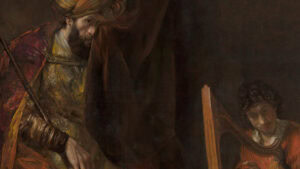
Friends and Enemies in the Book of Samuel
Tobey Linhart
Wednesdays | 8-9:15 PM ET
The Book of Samuel tells the story of our people. It holds in it stories of love, betrayal, covenant, strategy, and failed and redemptive leadership. In this class we will spend five sessions analyzing these themes. We will focus on the questions of commitment and covenant: to whom are we obligated and how? Students will be expected to read Samuel I in preparation for this course.
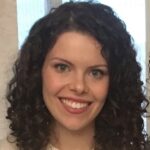
Tobey Linhart received a BA in English Literature at New York University and is currently pursuing an MA in Humanities with a concentration in Classical Education at the University of Dallas. Previously, she taught History of Israel at the Maimonides School. Tobey has been involved with the Tikvah Fund since high school, first as a student and after graduating college, as the Associate Director of University Programs. Tobey lives with her husband and daughters in Riverdale, NY.
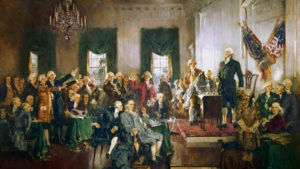
Religion and the First Amendment
Tzivia Lutch
Sundays | 7–8:15 PM ET
Is the separation of church and state part of our law? If so, what does “separation” mean? If not, how should religious Americans bring their faith to the public square? In this course, we will examine competing views of the proper relationship between religion and American public life, from our nation’s founding until today. Through excerpts from political philosophers, Supreme Court cases, and contemporary scholars, we will try to weigh the costs and benefits of the various approaches to answering the persistent questions raised by our First Amendment’s Free Exercise and Establishment clauses.
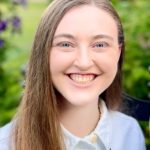
Ms. Tzivia Lutch serves as Confidential Assistant to Commissioner Andrew Ferguson at the Federal Trade Commission in Washington, DC. Ms. Lutch’s prior policy, government, and NGO work in DC has included working in the office of Senator Tom Cotton (where she researched the China-US relationship and the geopolitical standing of Taiwan), supporting the work of the Louis D. Brandeis Center for Human Rights Under Law (working to protect students facing anti-Zionism and anti-Semitism on college campuses); and interning at the US Court of Federal Claims, in the chambers of Judge Mathew H. Solomson. Tzivia graduated Summa Cum Laude from Touro University’s Honors Political Science program where her studies focused on the intersection of appellate jurisprudence, individual rights, and the legislative process. Tzivia has been involved with Tikvah for over four years. She has served as a Tikvah Collegiate Forum chapter president, a Beren-Tikvah fellow, and as a teacher in the Tikvah Online Academy.
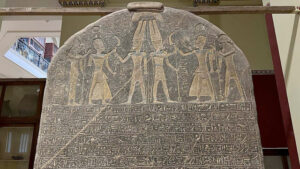
How Archeology Adds a Third Dimension to the Bible – COURSE FILLED
Tuvia Book
Sundays | 10–11:15 AM ET
Since biblical archeology first became a serious scientific subject in the middle of the nineteenth century, it has been the focus of intense debate. The nineteenth century was an age of skepticism where traditional beliefs were seriously challenged and questioned. Charles Darwin was a symbol of this age. His “Origin of the Species,” questioned the biblical version of the creation of mankind. One of the main goals of the early biblical archeologists was to prove the truth of the Bible by finding physical remains from the period in question. Their aim was to vindicate the Bible as history. This type of archeology received a boost from the rise of Zionism in Israel. Archeology is an important tool in strengthening the bond between the Jewish people and the Land of Israel. Archaeology contributes greatly to an understanding of and an appreciation of Tanakh (Bible). Standing before archaeological finds from the period is a powerful and moving experience. Archaeological research influences and deepens our understanding of and appreciation of the Tanakh. This course will examine the Bible with independent archeological evidence. We will add archeological, which includes contemporaneous epigraphical, evidence to emphasize and enrich our understanding of the primary biblical text. We will be examining world-famous artifacts from the field of biblical archeology which enrich our understanding of the eternal Book of Books.

Dr. Tuvia Book was born in London and raised in both the UK and South Africa. After making Aliyah at the age of 17, he studied in Yeshiva and volunteered for the IDF, where he served in an elite combat unit. Tuvia has been working in Jewish education, both formal and informal, for many years. He is a licensed tour guide and has taught students and educators from around the world for some of Israel’s premier educational institutions and programs. He is the author (and illustrator) of the internationally acclaimed Israel education curriculum For the Sake of Zion: A Curriculum of Israel Studies, as well as Moral Dilemmas of the Modern Israeli Soldier. He has just completed his next book on the history of the Jewish people during the Second Temple period, to be published by Koren.
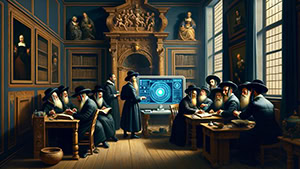
Judaism and Artificial Intelligence: Coexistence or Conflict? – COURSE FILLED
Sarah Levy
Mondays | 7:30–8:45 PM ET
In this course, students will explore the intersection of Judaism and artificial intelligence, examining how Jewish values and ethics can guide our understanding of emerging technologies. Through discussions and case studies, we will delve into questions of morality, responsibility, and the potential impact of AI on society. Together, we will determine whether Judaism and AI can co-exist harmoniously or if they are destined for conflict.
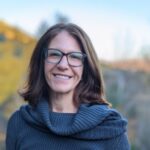
Dr. Sarah Rubinson Levy has been involved in education since 2001 – working, teaching, consulting, and writing in the areas of supplemental, day school, adult, and experiential education. She holds an undergraduate degree in business and sociology and holds a Master of Jewish Education degree from Hebrew College, a doctorate in education from Northeastern University, and certificates in Advanced Jewish Studies, Day School Education, Jewish Educational Leadership, and Elements of AI. She also has certifications in Executive Coaching and Responsible AI. Her areas of focus include progressive/student-centered education, integration of artificial intelligence into education, and teacher professional development and support. She considers herself a scholar-practitioner, drawing from research and data to create effective and joyful learning environments. Most recently, she was a founding head of school for Einstein Academy, a progressive private school in Denver, CO. She currently empowers excellence in education through her work with Sarah Rubinson Consulting and Contracting with an approach that integrates empathy and curiosity, working with each organization in a way that is both realistic and aspirational. She is a proud Colorado native and currently lives in Denver, CO with her four kids, dog, beta fish, and leopard gecko.
Living the Good Life: Wisdom from Ethics of the Fathers
Rachel Besser
Thursdays | 7–8:15 PM ET
What makes a true friend? How should I balance my time? Why am I so easily influenced by others? How can I cultivate ambition properly? These questions are important—perhaps even essential—to living a good life, but they are difficult and complicated to answer. Ethics of the Fathers, Pirkei Avot, is an ancient text with contemporary relevance that can help us address these challenges. In this course, we will examine perennial questions with the help of the sages in the Ethics of the Fathers; we will also read stories from the Bible as well as contemporary literature and philosophy. In our exploration, we will attempt to uncover what the Jewish tradition teaches us about how to live a good life.
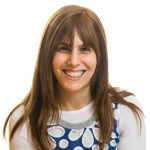
Rachel Besser is a teacher and department chair at the Frisch School where she teaches Bible and Jewish philosophy. A graduate of Stern college, Rachel received her Masters from Hunter College in English Literature. She lives with her husband and children in Clifton NJ.
Register for Your Course Below:
Tikvah Online Academy Fall 2024
